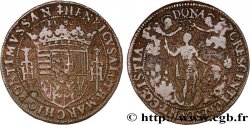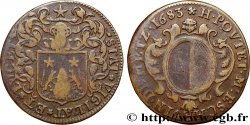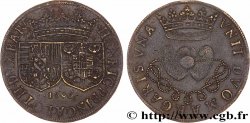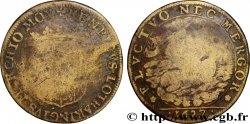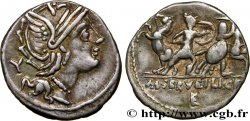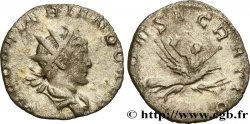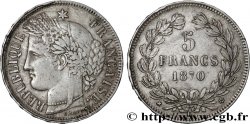fjt_713674 - LORRAINE : NOBLESSE ET VILLES Charles de Lorraine n.d.
60.00 €
Quantità
Aggiungi al carrello

Tipo : Charles de Lorraine
Data: n.d.
Metallo : rame
Diametro : 29 mm
Asse di coniazione : 6 h.
Orlo : lisse
Grado di rarità : R2
N° nelle opere di riferimento :
Pedigree :
Exemplaire provenant de la Collection MARINECHE
Diritto
Titolatura diritto : CAROL CARD D LOTH ARCH DVX RHEM.
Descrittivo diritto : Armes de Charles de Guise.
Rovescio
Titolatura rovescio : CRESCAM ET TE STANTE VIREBO.
Descrittivo rovescio : Pyramide.
Traduzione rovescio : Mon âme s'est accrochée après toi.
Commento
Charles de Lorraine (né le 17 février 1524 à Joinville et mort le 26 décembre 1574 à Avignon) fut duc de Chevreuse, archevêque de Reims, évêque de Metz de 1550 à 1551. Elevé au cardinalat en 1547[1], il est d'abord connu comme cardinal de Guise puis cardinal de Lorraine. C'est un homme politique et un intellectuel religieux qui joua un rôle important durant les guerres de religion.
Dans un premier temps ouvert à la discussion et à la réforme de l'Eglise, il soutint la politique du chancelier Michel de l'Hospital tout en s'illustrant comme le champion de la cause catholique. Avec son frère le duc de Guise, il dirigea la France sous le règne de François II (1559-1560), il participa au colloque de Poissy (1561), puis au concile de Trente (1563). Chef de la maison de Guise, il s'opposa durant le reste de sa carrière à la politique de Catherine de Médicis.
Pour sa biographie complète, voir http://fr.wikipedia.org/wiki/Charles_de_Lorraine_%281524-1574%29.
Charles of Lorraine (born February 17, 1524 in Joinville and died December 26, 1574 in Avignon) was Duke of Chevreuse, Archbishop of Reims, Bishop of Metz from 1550 to 1551. Elevated to the cardinalate in 1547[1], he is first known as Cardinal of Guise then Cardinal of Lorraine. He was a politician and religious intellectual who played an important role during the Wars of Religion. Initially open to discussion and reform of the Church, he supported the policy of Chancellor Michel de l'Hospital while distinguishing himself as the champion of the Catholic cause. With his brother the Duke of Guise, he ruled France under the reign of Francis II (1559-1560), he participated in the Colloquium of Poissy (1561), then in the Council of Trent (1563). Head of the House of Guise, he opposed the policies of Catherine de Medici for the rest of his career. For his full biography, see http://fr.wikipedia.org/wiki/Charles_de_Lorraine_%281524-1574%29
Dans un premier temps ouvert à la discussion et à la réforme de l'Eglise, il soutint la politique du chancelier Michel de l'Hospital tout en s'illustrant comme le champion de la cause catholique. Avec son frère le duc de Guise, il dirigea la France sous le règne de François II (1559-1560), il participa au colloque de Poissy (1561), puis au concile de Trente (1563). Chef de la maison de Guise, il s'opposa durant le reste de sa carrière à la politique de Catherine de Médicis.
Pour sa biographie complète, voir http://fr.wikipedia.org/wiki/Charles_de_Lorraine_%281524-1574%29.
Charles of Lorraine (born February 17, 1524 in Joinville and died December 26, 1574 in Avignon) was Duke of Chevreuse, Archbishop of Reims, Bishop of Metz from 1550 to 1551. Elevated to the cardinalate in 1547[1], he is first known as Cardinal of Guise then Cardinal of Lorraine. He was a politician and religious intellectual who played an important role during the Wars of Religion. Initially open to discussion and reform of the Church, he supported the policy of Chancellor Michel de l'Hospital while distinguishing himself as the champion of the Catholic cause. With his brother the Duke of Guise, he ruled France under the reign of Francis II (1559-1560), he participated in the Colloquium of Poissy (1561), then in the Council of Trent (1563). Head of the House of Guise, he opposed the policies of Catherine de Medici for the rest of his career. For his full biography, see http://fr.wikipedia.org/wiki/Charles_de_Lorraine_%281524-1574%29







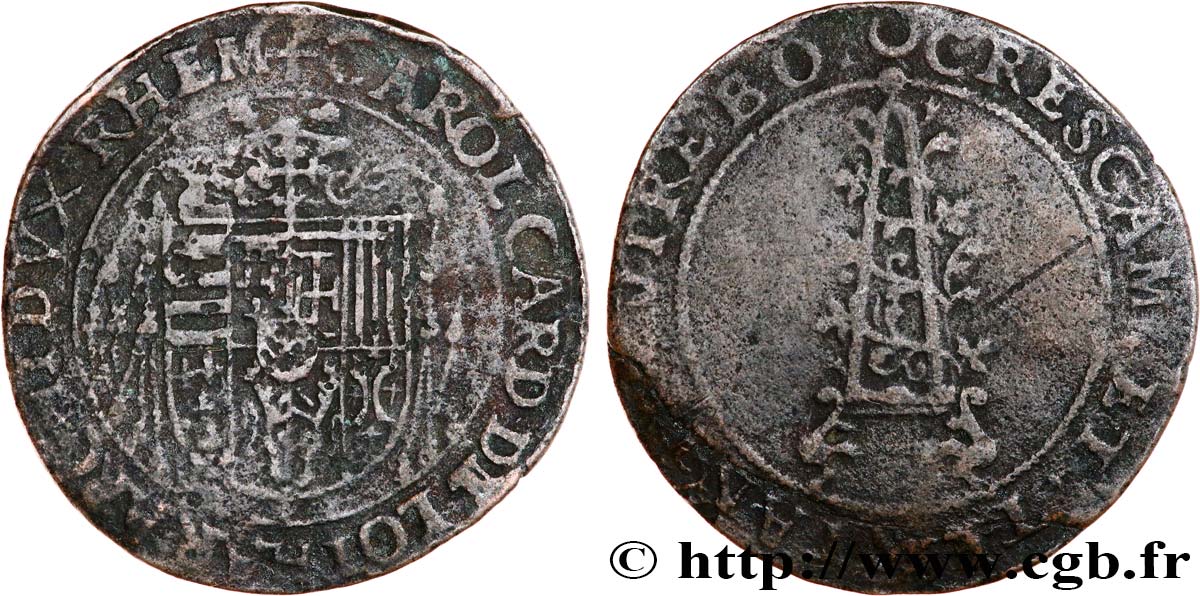
 Segnalare un errore
Segnalare un errore Stampate la pagina
Stampate la pagina Condividi mia selezione
Condividi mia selezione Fai una domanda
Fai una domanda Consegnare / vendere
Consegnare / vendere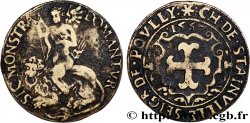
 Descrittivo
Descrittivo